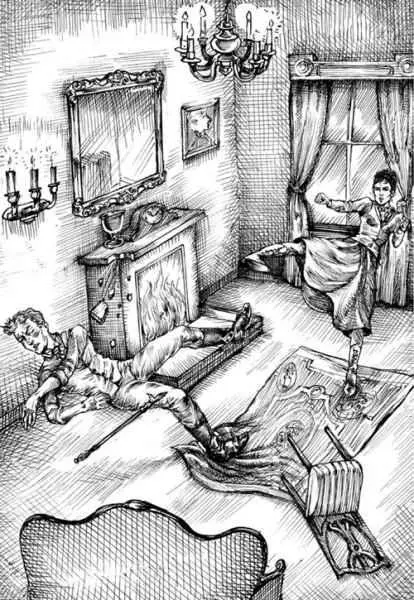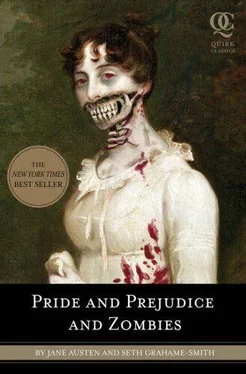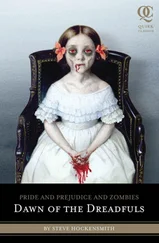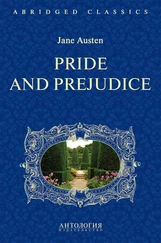“To Jane herself,” she exclaimed, “there could be no possibility of objection; all loveliness and goodness as she is! Her understanding excellent, her musketry unmatched, and her manners captivating. Neither could anything be urged against my father, who, though with some peculiarities, has abilities Mr. Darcy himself need not disdain, and respectability which he will probably never reach.” When she thought of her mother, her confidence gave way a little; but she would not allow that any objections there had material weight with Mr. Darcy, whose pride, she was convinced, would receive a deeper wound from the want of importance in his friend’s connections, than from their want of sense; and she was quite decided, at last, that he had been partly governed by this worst kind of pride, and partly by the wish of retaining Mr. Bingley for his sister.
The agitation which the subject occasioned, brought on a headache; and it grew so much worse towards the evening, that, added to her unwillingness to kill Mr. Darcy in the company of his aunt (lest she interfere), it determined her not to attend her cousins to Rosings, where they were engaged to drink tea.
WHEN THEY WERE GONE, Elizabeth, as if intending to exasperate herself as much as possible against Mr. Darcy, chose for her employment the examination of all the letters which Jane had written to her since her being in Kent. They contained no actual complaint, nor was there any revival of past occurrences, or any communication of present suffering. But in all, and in almost every line of each, there was a want of that cheerfulness which had been used to char-acterise her style. Elizabeth noticed every sentence conveying the idea of uneasiness, with an attention which it had hardly received on the first perusal. Mr. Darcy’s shameful boast of what misery he had been able to inflict, gave her a keener sense of her sister’s sufferings. It was some consolation to think that he would soon fall at the end of her blade-and that in less than a fortnight she should herself be with Jane again, and enabled to contribute to the recovery of her spirits, beginning with the presentation of Darcy’s heart and head.
She could not think of Darcy without remembering his cousin; for agreeable as he was, Colonel Fitzwilliam was also the one man who could assign the guilt of Darcy’s slaying to Elizabeth. He would have to be dispensed with as well.
While settling this point, she was suddenly roused by the sound of the door-bell, and her spirits were a little fluttered by the idea of its being Colonel Fitzwilliam himself. But this idea was soon banished, and her spirits were very differently affected, when, to her utter amazement, she saw Mr. Darcy walk into the room. In a hurried manner he immediately began an inquiry after her health, imputing his visit to a wish of hearing that she were better. She answered him with cold civility, scarcely able to believe her luck at his happening by so soon, and waiting for the first opportunity to excuse herself and retrieve her Katana. He sat down for a moment, and then getting up, walked about the room. After a brief silence, he came towards her in an agitated manner, and thus began:
“In vain I have struggled. It will not do. My feelings will not be repressed. You must allow me to tell you how ardently I admire and love you.”
Elizabeth’s astonishment was beyond expression. She stared, coloured, doubted, and was silent. This he considered sufficient encouragement; and the avowal of all that he felt, and had long felt for her, immediately followed. He spoke well; but there were feelings besides those of the heart to be detailed; and he was not more eloquent on the subject of tenderness than of pride. His sense of her inferiority-of its being a degradation-of the family obstacles which had always opposed to inclination, were dwelt on with a warmth which seemed due to the consequence he was wounding, but was very unlikely to recommend his suit.
In spite of her deeply rooted bloodlust, she could not be insensible to the compliment of such a man’s affection, and though her intention of killing him did not vary for an instant, she was somewhat sorry for the pain he was to receive; till, roused to resentment by his subsequent language, she lost all compassion in anger. She tried, however, to compose herself to answer him with patience, lest her intentions be exposed. He concluded with representing to her the strength of that attachment which, in spite of all his endeavours, he had found impossible to conquer; and with expressing his hope that it would now be rewarded by her acceptance of his hand. As he said this, she could easily see that he had no doubt of a favourable answer. He spoke of apprehension and anxiety, but his countenance expressed real security. Such a circumstance could only exasperate farther, and, when he ceased, the colour rose into her cheeks, and she said:
“In such cases as this, it is, I believe, the established mode to express a sense of obligation for the sentiments avowed, however unequally they may be returned. It is natural that obligation should be felt, and if I could feel gratitude, I would now thank you. But I cannot-I have never desired your good opinion, and you have certainly bestowed it most unwillingly. I am sorry to have occasioned you pain, but only sorry because it has been most unconsciously done. Before you walked through that door, I had resolved to strike you down, sir. My honor-nay, the honor of my family, demands no lesser satisfaction.”
Elizabeth presently lifted her dress above her ankles and struck a basic crane pose, which she thought well-suited for the cramped quarters. Mr. Darcy, who was leaning against the mantelpiece with his eyes fixed on her face, seemed to catch her words with no less resentment than surprise. His complexion became pale with anger, and the disturbance

ONE OF HER KICKS FOUND ITS MARK, AND DARCY WAS SENT INTO THE MANTELPIECE WITH SUCH FORCE AS TO SHATTER ITS EDGE
of his mind was visible in every feature. At length, with a voice of forced calmness, he said:
“And this is all the reply which I am to have the honour of expecting! I might, perhaps, wish to be informed why, with so little endeavour at civility, I am thus rejected and challenged?”
“I might as well inquire,” replied she, “why with so evident a desire of offending and insulting me, you chose to tell me that you liked me against your will, against your reason, and even against your character? Do you think that any consideration would tempt me to accept the man who has been the means of ruining, perhaps forever, the happiness of a most beloved sister?”
As she pronounced these words, Mr. Darcy changed colour; but the emotion was short, for Elizabeth presently attacked with a series of kicks, forcing him to counter with the drunken washwoman defense. She spoke as they battled:
“I have every reason in the world to think ill of you. No motive can excuse the unjust and ungenerous part you acted there . You dare not, you cannot deny, that you have been the principal, if not the only means of dividing them from each other.”
One of her kicks found its mark, and Darcy was sent into the mantelpiece with such force as to shatter its edge. Wiping the blood from his mouth, he looked at her with a smile of affected incredulity.
“Can you deny that you have done it?” she repeated.
With assumed tranquility he then replied, “I have no wish of denying that I did everything in my power to separate my friend from your sister, or that I rejoice in my success. Towards him I have been kinder than towards myself.”
Читать дальше













